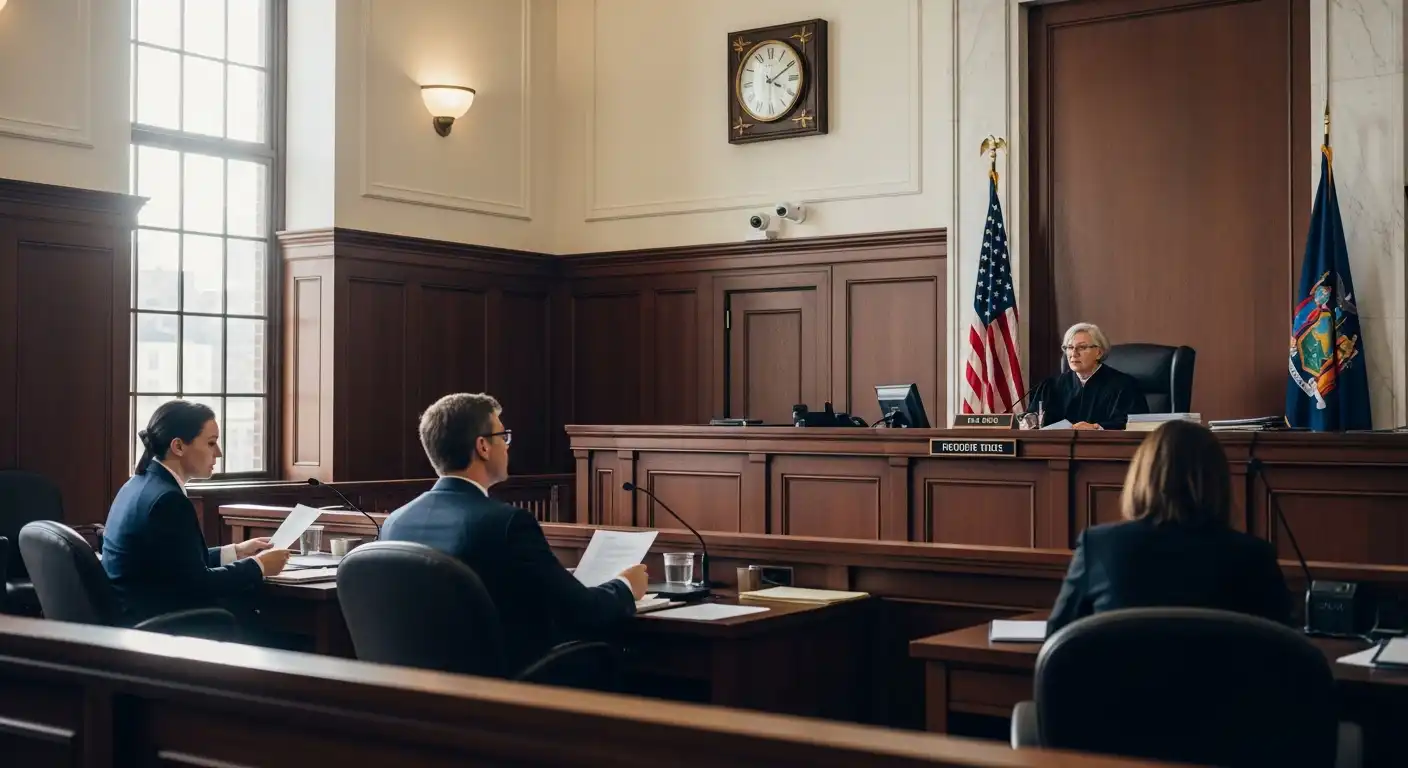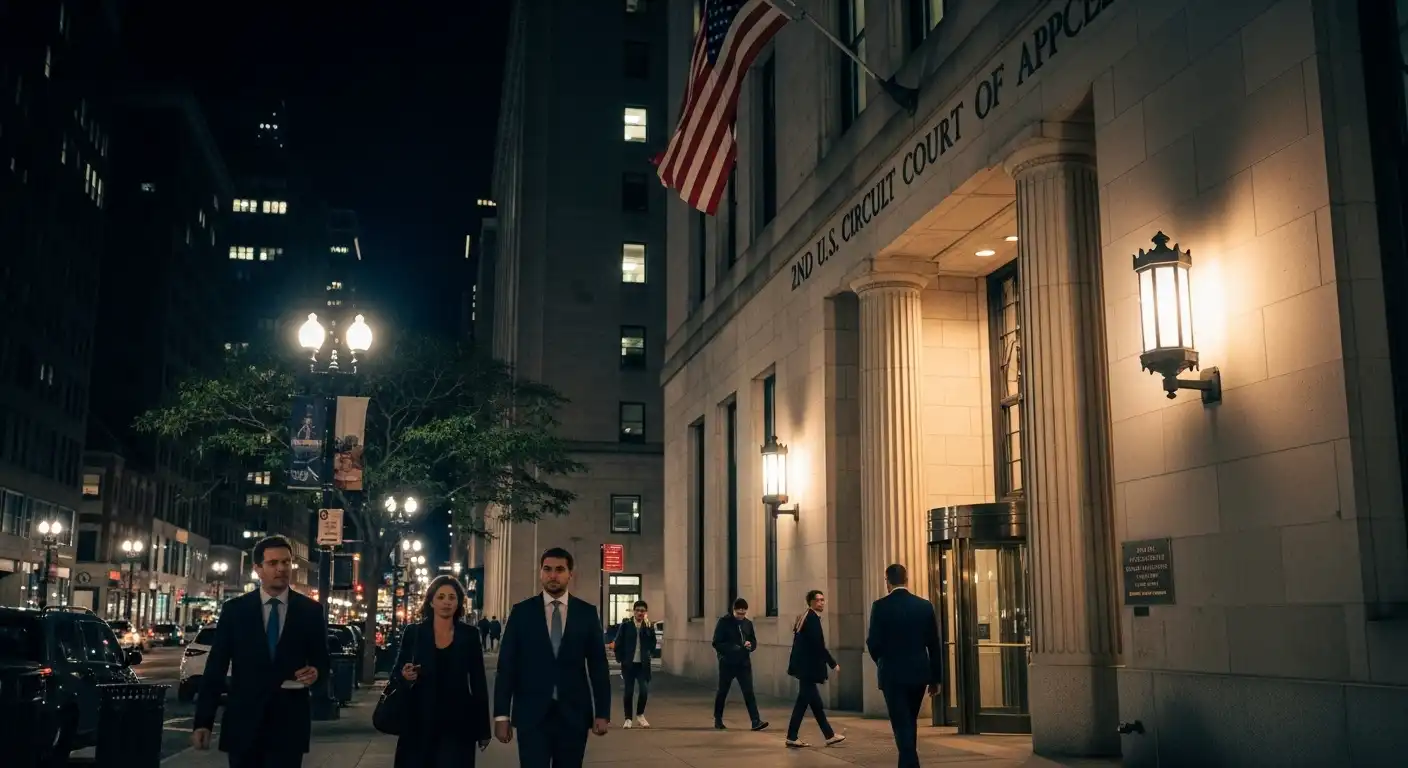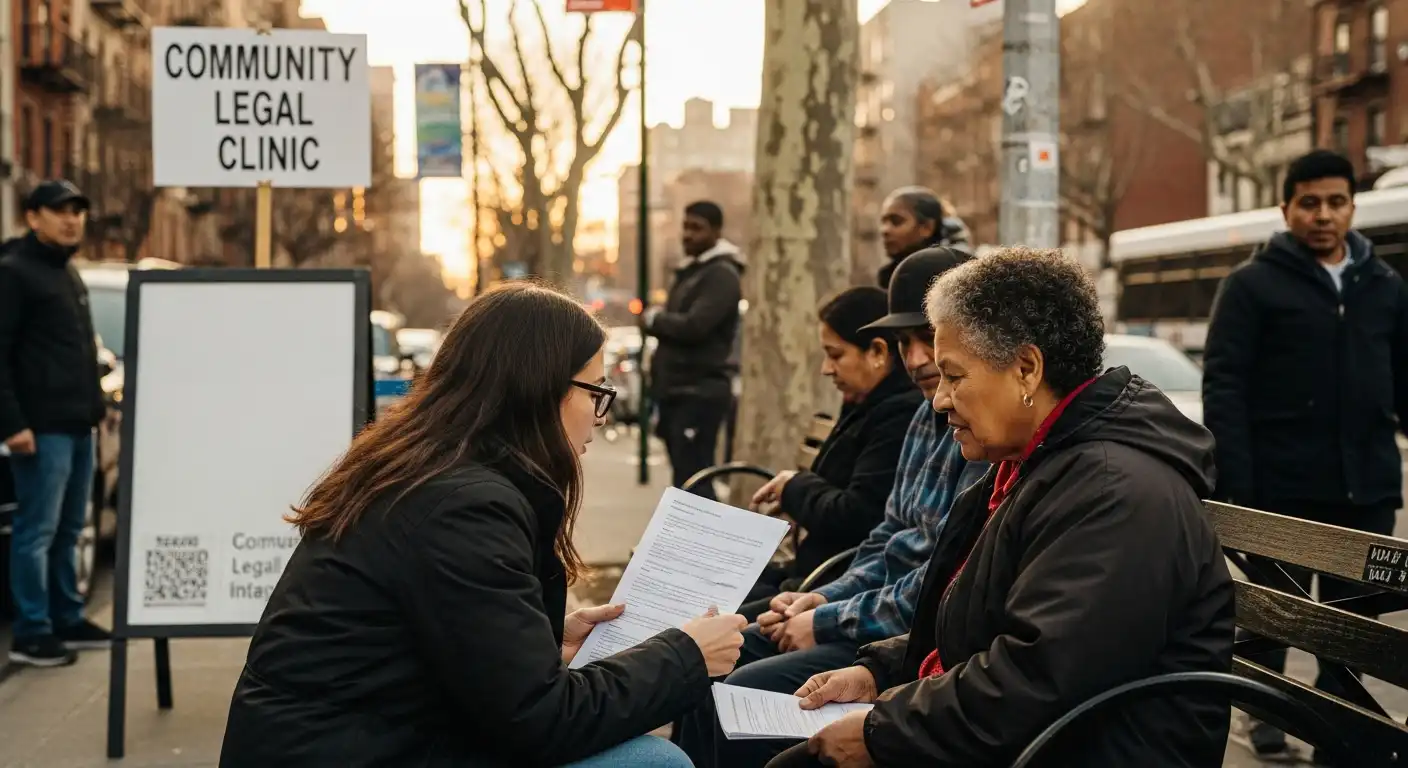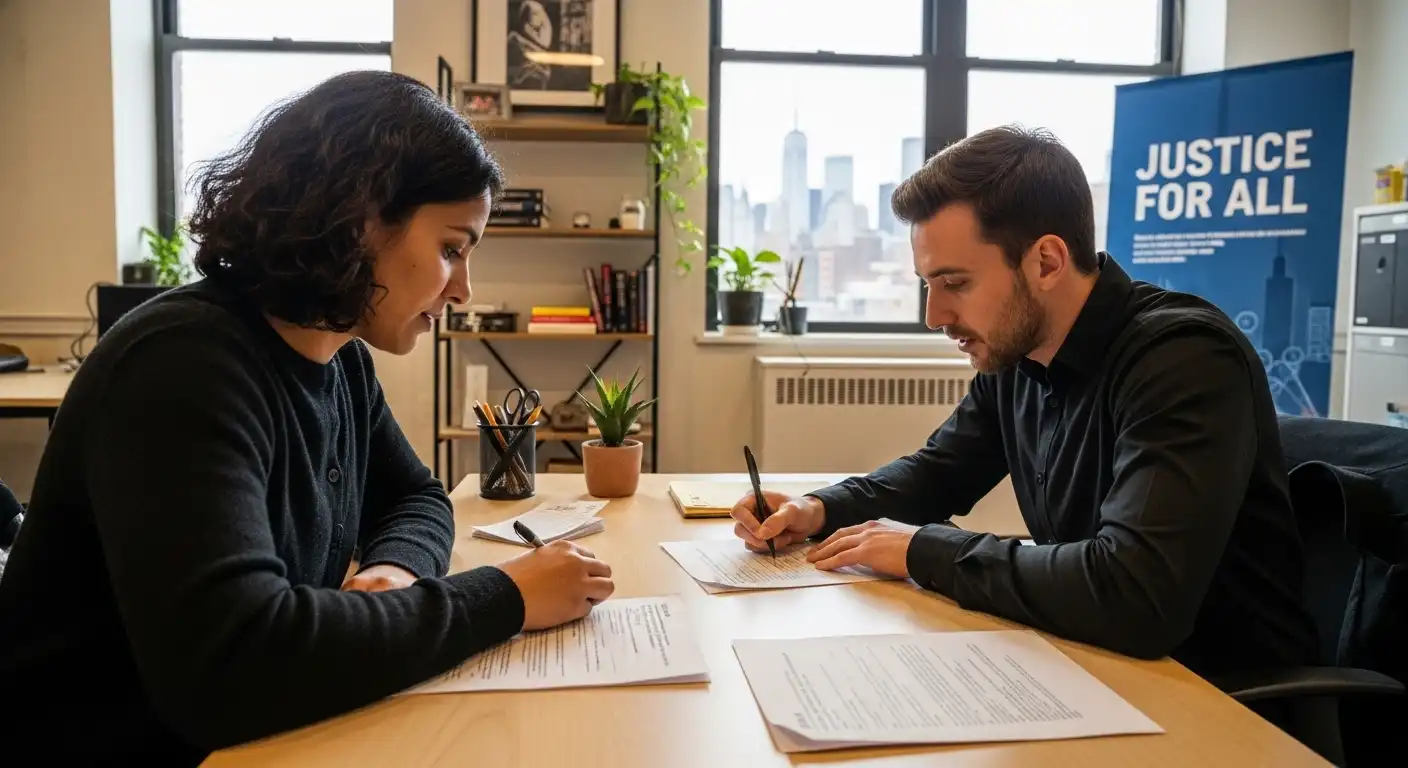Upsolve Case: Free Speech, Access to Justice, and Unauthorized Practice of Law in New York
In 2022, the nonprofit Upsolve sued the New York Attorney General over the state’s rules prohibiting the unauthorized practice of law (“UPL”), arguing that those rules infringe on the First Amendment right to free speech. Upsolve’s program trains volunteers (non‑lawyers) to help low‑income New Yorkers respond to debt‑collection lawsuits by filling out answer forms and providing limited legal advice. A federal district court granted a preliminary injunction in favor of Upsolve, finding that its activities are protected speech. But in September 2025, the U.S. Court of Appeals for the 2nd Circuit overturned parts of that decision — not because the activities are unprotected, but because the court held that the UPL rules are content‑neutral and thus should be evaluated under a less demanding standard of “intermediate scrutiny” rather than “strict scrutiny.” This ruling has significant implications for legal nonprofits, access to justice, and how free speech law intersects with professional licensing rules.
What Upsolve Does and What the UPL Rules Cover
Upsolve is a nonprofit that helps low‑income individuals with bankruptcy and consumer debt issues. Among its programs is the “American Justice Movement,” which trains “Justice Advocates” (non‑lawyer volunteers) to provide out‑of‑court advice to people sued by debt collectors — particularly helping with completing answer forms provided by New York courts, so debt plaintiffs cannot get default judgments.
New York law contains rules (statutes and bar regulation) that define the “practice of law” as something limited to licensed lawyers. It is both a civil and criminal offense under certain statutes for unlicensed persons to practice law, which includes giving legal advice in many circumstances. These laws are intended to protect the public from receiving inadequate or harmful legal representation.

The District Court Decision: First Preliminary Injunction (2022)
In May 2022, U.S. District Judge Paul A. Crotty (Southern District of New York) granted Upsolve a preliminary injunction blocking the New York Attorney General from enforcing UPL rules against Upsolve’s Justice Advocates program. The court found that Upsolve is likely to succeed on its argument that UPL rules applied to its program violate the First Amendment. Key findings in that decision included:
- Upsolve’s program is carefully limited: advice is verbal, out‑of‑court, limited to debt‑collection answer forms, free of charge, with training and codes of conduct for the volunteers.
- The district court treated Upsolve’s challenge as an “as‑applied” rather than a facial challenge, meaning the court was looking at how the UPL rule would apply to this particular program rather than declaring the rule invalid in all circumstances.
- The court held that the UPL rules, as applied to this limited program, regulated pure speech (verbal or written advice), rather than conduct. That meant the highest standard, “strict scrutiny,” should apply. Under strict scrutiny, the government must show that the regulation is narrowly tailored to serve a compelling state interest and that there is no less restrictive means.
- Balancing the equities: the court emphasized the public interest in avoiding default judgments, alleviating burdens on courts, helping litigants who otherwise would have no legal assistance.
This decision was hailed by access to justice advocates as a potential turning point in expanding legal help for underserved populations.

Appellate Court’s Ruling: Intermediate Scrutiny, Not Strict
In September 2025, the 2nd U.S. Circuit Court of Appeals reversed part of the district court’s decision. The appeals court did **not** deny that Upsolve’s activities implicate speech protected by the First Amendment; rather, the court held that New York’s UPL rules are **content‑neutral regulations of speech**, and therefore must be evaluated under “intermediate scrutiny,” a less rigorous standard than strict scrutiny.
Under intermediate scrutiny, the regulation must be substantially related to an important governmental interest, and the means chosen must not be substantially broader than necessary. The appeals court determined that New York’s interest in protecting consumers from bad legal advice, preserving the integrity of the legal profession, and preventing harm justifies more regulation than under strict scrutiny. As a result, the earlier injunction was vacated, and the case was sent back down to the district court to apply the proper standard.
Legal & Constitutional Issues Raised by the Case
The Upsolve case raises a number of critical issues at the intersection of free speech, professional regulation, and access to justice. Some of the main legal and constitutional questions include:
- What is “speech” vs “professional conduct”? Courts often distinguish between speech — advice, expressions — and conduct — actions. Many UPL rules regulate what non‑lawyers *do*, but some activities are core speech (providing advice, explaining rights) which historically is more protected under the First Amendment. Upsolve’s argument hinges on showing that their advice is speech, making it more protected.
- Strict vs Intermediate Scrutiny: If a law regulates speech in a content‑based way (i.e. based on what is said), strict scrutiny is triggered; if content‑neutral, a lower standard often applies. The appeals court’s finding that New York’s UPL rules are content‑neutral shifts the burden of proof and ease of challenge.
- Narrow tailoring and overbreadth: Whether the UPL rules are too broad when covering advice in limited scenarios; whether there are less restrictive ways to protect consumers, e.g. regulation of fraudulent advice without banning all nonlawyer assistance.
- Access to Justice & Equity: Because many low‑income people cannot afford lawyers, UPL rules (as enforced) can limit legal remedies for people facing debt, eviction, or other civil legal issues. The Upsolve case highlights that restricting non‑lawyer advice may disproportionately harm vulnerable communities.
- Role of nonprofits & legal technology: The use of trained volunteers, software tools, and online help raises questions about whether innovations should be constrained by old regulatory frameworks.
What Happens Now: Lower Court, Possible Supreme Court, and Broader Trends
With the appellate ruling, the Upsolve case is not over. Several next steps and possible outcomes are important to watch:
- District court reanalysis: The case returns to the Southern District of New York to apply intermediate scrutiny. That means Upsolve will have to show that New York’s UPL rules are substantially related to the state’s important interests and that the rules are not broader than necessary. The outcome could go either way under this standard.
- Supreme Court review: Upsolve’s lawyers have indicated they may seek certiorari (review by the U.S. Supreme Court), especially if there are splits among circuits about how UPL and free speech intersect.
- Policy / legislative responses: Legislatures in New York or other states may consider amending UPL statutes to allow for narrow exceptions for nonprofit legal help programs or volunteer advice in certain forms. Also possible are regulatory sandboxes for legal tech.
- Effect on legal tech & nonprofits: Organizations that provide form‑filling, advice, coaching without being full lawyers will examine whether their models are exposed to litigation. Many may adjust the scope of services, fees, volunteer vs paid models, or limit advice to certain pre‑defined categories.
- Access to justice litigation elsewhere: Similar challenges are appearing in other states — some cases focus on nonlawyer help in civil cases, filling out forms, guiding people through debt or eviction proceedings. Upsolve may become a precedent.

Implications & Practical Advice for Legal Non‑Profits, Volunteers, and Low‑Income Individuals
The Upsolve decision (and its remand) has real‑world implications for multiple stakeholders:
- Non‑profits & Legal Aid Organizations: These should review their programs to ensure that the services provided are well‑documented, clearly limited in scope, and that volunteers are trained (on limitations, ethics, confidentiality). Contracts or agreements may help delineate what advice is given. Clear disclaimers and referral mechanisms for more complex cases can help reduce risk.
- Volunteers / Justice Advocates: Volunteers should be aware of what duties and limits exist—what they are allowed to advise on, how they must identify themselves, ensure they are not violating law in giving advice, confidentiality rules, etc. Following training and ethical rules is crucial.
- Low‑income Individuals Seeking Help: People who cannot afford lawyers may increasingly rely on nonprofits or technology tools for legal help. They should seek out organizations that clearly disclose limitations, provide referrals when needed, and offer advice as part of a structured program. Document everything—forms, advice given, timing.
- Tech & Platform Developers: Apps or tools that help with legal forms or give guidance need to evaluate whether they fall under UPL rules in states, and whether their content is speech vs conduct. They may consider building features to limit advice or guide users to licensed attorneys when necessary.
- Lawmakers & Regulators: Legislative bodies may decide to define more precisely what counts as “practice of law” vs permissible advice, especially for pro bono or nonprofit work, and whether licensing requirements need reform. Some states have begun exploring paraprofessional licensing or regulatory sandboxes.
Broader Significance & The Access to Justice Moment
Beyond the narrow legal questions, the Upsolve case sits within a larger movement and set of pressures in the legal, policy, and civic spheres:
- Access to Justice Crisis: There is a large justice gap in the U.S., especially in civil legal matters like debt, eviction, family law. Many people represent themselves or default because they can’t afford lawyers. The Upsolve decision helps challenge the barriers that enforce that gap.
- Free Speech & Professional Regulation Balancing: Professional licensing often limits who can give legal advice. The Upsolve case forces courts and regulators to reckon with how much of that is speech that deserves First Amendment protection vs legitimate consumer protection.
- Innovation & Legal Technology: The legal tech sector is growing — tools that help people fill out forms, get legal coaching, use AI for legal document preparation etc. Upsolve’s case may make it easier for such tools (especially nonprofit/low‑cost ones) to operate more freely. But risk remains where the law is vague.
- Precedents for Nonprofits & Volunteer Models: Because Upsolve is a nonprofit using volunteers, the protections and risks differ from for‑profit legal service providers. How the courts treat profit motive, scale, and regulation will be important.
Conclusion
The Upsolve case highlights a clash of values: consumer protection & professional standards vs free speech & access to justice. The 2nd Circuit’s ruling in 2025 did not end the case—it changed the standard by which Upsolve must challenge New York’s UPL rules. Applying intermediate scrutiny may make it more difficult for Upsolve to succeed than under strict scrutiny, but the fight is far from over. For legal nonprofits, volunteers, lawmakers, and affected individuals, the case is a key turning point. It signals that legal advice regulation will be under increasing scrutiny, especially in the context of nonlawyer and nonprofit actors seeking to serve vulnerable populations.
For related content on this site, see our posts on Access to Justice & Legal Aid Innovations, First Amendment Law & Digital Rights, and Legal Tech & Nonprofit Service Models.
